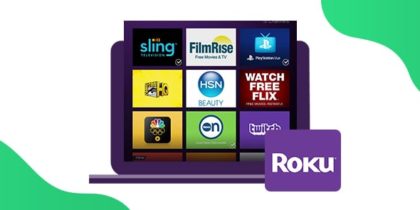WhatsApp reigns supreme as the largest messaging service globally, with more than 2 billion monthly active users. It is easy to use, has a minimalist user-interface, can be used on all major platforms, and most importantly, is ad-free. However, WhatsApp’s latest policy changes have direct repercussions on how it collects user data. Intrusive, draconian, unwarranted… it’s been called all sorts of mean adjectives, but regardless of it all, these changes will come into effect from February 2021. Naturally, users have begun to look for alternatives.
So, if you’ve made up your mind to switch over to a different messaging app, the best (and most secure) options are undoubtedly Signal and Telegram. To make it easier for you to make up your mind, here’s a comparison pinning Signal vs Telegram across different categories. It’ll not only make it easier for you to decide but also give you an insight into what kind of service you can expect:
Security
Telegram offers the industry-standard end-to-end encryption to all users. However, there is a catch. It’s not enabled by default. You’ll have to enable it from the app’s settings, and once you do, you can only use it via the Secret Chats mode. All messages sent through this mode are encrypted via the MTProto encryption protocol, but any normal messages sent outside this mode are not. So, any messages you send are encrypted on your device but decrypted on Telegram’s server. Then, the messages are encrypted again and sent to the recipient for the final decryption. Moreover, you can use the Secret Chats feature on all the app’s desktop clients apart from macOS.
Telegram does have encryption keys on the server-side. This means that Telegram can, in theory, access your normal chats. If you’re understandably worried, then Telegram has addressed this issue. It would require court orders through several legal systems for your data to be accessible. The company also states that it has to this day shared 0 bytes of data with any third-party or government.
Comparatively, Signal has significantly more layers of security measures in place, both at the back and front end. Unlike Telegram, Signal uses the open-source Signal Protocol. This helps it implement end-to-end encryption for all communications done via the app. Signal goes a little further and encrypts all metadata too. Impressively, Signal introduced an entirely new method of communication known as Sealed Sender. Thanks to this, no one, not even Signal, can know who’s messaging whom. Talk about attention to detail.
You can also find the standard security options such as 2-Factor Authentication, blocked screenshots, biometric security, and all files being encrypted via a 4-digit passphrase. Furthermore, you can also encrypted backups for all your local files in addition to making encrypted group calls. Cellebrite claimed a couple of years ago that it had cracked Signal’s security protocols, leading to Signal debunking these claims with a thorough response. You can read all about it here.
Ownership
You may wonder why ownership should be a factor in deciding which app to choose. While it may not seem like it at first, in reality, who owns the app dictates how the app operates. This includes their policy on collecting data, and of course, their revenue stream.
Telegram was launched in 2013 by the Durov brothers, Nikolai and Pavel. Both are Russian and under self-imposed exile. Pavel Durov found himself dismissed as CEO on a Russian social media site, VK after he refused to hand over Ukrainian protesters’ data to government agencies. The Pavel brothers have since funded Telegram and worked to maximize its user-base around the world. Pavels’ principle stance against censorship led them to develop Telegram. For all its worth, Telegram inspires the public’s trust and confidence, considering the very reason for its existence is the developers’ opposition to government insight over citizens’ communications.
Conversely, Signal is owned by the non-profit organization, Signal Foundation. The company is run by famed cryptographers Moxie Marlinspike and Brain Acton. Moxie was a vital member of the team that developed Open Whisper Systems. This is essentially what led to the development of the Signal Protocol. In 2018, he found himself working with Brian Acton, coincidently a co-founder of WhatsApp. His reason for quitting WhatsApp was opposition to Facebook’s acquisition of the app and their plans for it going forward.
Signal has since managed to gain public support through its remarkable dedication to customer privacy and endorsements. This includes renowned whistleblower Edward Snowden, Twitter’s CEO Jack Dorsey. What set Signal really on the map is its top score on the EFF’s Secure Messaging Scorecard, making it by far the most secure messaging app in the market.
As for revenues, Signal relies on donations, charity, and grants, similar to how Wikipedia operates.
Features
Ultimately, if you’re switching over from WhatsApp, this is what may end up being what you consider the most critical factor. You’ll be glad to know that you’ll retain all the essential features. For instance, while WhatsApp allows you to create a group of up to 256 members, Telegram supports 200,000 members. Within these groups, you’ll find a plethora of features such as polls, bots, quizzes, hashtags, and more to keep the experience fun and enjoyable.
Additionally, there are other important features, such as self-destructing messages that expire after a time limit that you can set. Similarly, you’ll be able to use features like scheduled messages, ability to share uncompressed media of up to 1.5 GB. It is available on all major operating systems while offering complete granular support over notifications as well.
On the other hand, Signal cannot boast such a decisive advantage over WhatsApp when it comes to features. There aren’t any major missing features, but considering what Telegram has to offer, it does count as a significant disadvantage on Signal’s part. For starters, you can’t broadcast a message to multiple contacts.
As for what features you do have, the incognito keyboard is impressive. Thanks to the photo editor, you can blur faces and private info from any media with one stroke. You can also relay voice calls through servers to hide your actual locations, similar to what a VPN does. You have the standard emoji and sticker options within the chat but not anything as flamboyant as Telegram’s chat options.
Verdict
At the end of the day, both apps have something unique and, in many cases, something better to offer than WhatsApp. If privacy is your utmost concern, then Signal is unquestionably the better choice with its proven track record as an impenetrable service with the industry’s best encryption protocols. On the other hand, for users that want adequate privacy but with an exuberant number of features to make their instant messaging experience even better, Telegram’s the way to go.
In either case, both services offer a much less intrusive privacy policy. It’s just the question of to what extent you want to protect yourself.



